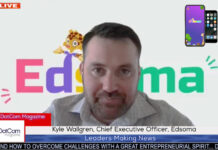Everyone has certain qualities about them that they are most confident about but there is the possibility that the confidence felt emanates from our individual idiosyncrasies. By this logic others may not necessarily see these qualities how we see them except they are expressed in a way that can win them over. The key to asserting his confidence and winning people over is communication. How we express our qualities will determine peoples perspective about these qualities, not necessarily how we feel about these qualities.
There are various qualities we may express that are far from the confidence we should express. Aggression may enforce fear which we mistake as respect, but this gets us more enemies than friends. There is also the passive-aggressive whose ambiguity will always irritate others. You may also be the passive individual who lets thing slide no matter the inconvenience it causes you. We opt for these different attitudes because we are comfortable with them but no one will ever express confidence adopting any of these attitudes.
To express confidence and effectively transmit this to these, be assertive. You do not have to be aggressive as this is in the end counterproductive. Just be assertive ditch these phrases that expresses timidity and weakness:
1 . “You need to…”
As we have stated already, our choice of language is crucial as it determines what effect we have on others. Never make a “you”-based request or statement (e.g., “You cannot…” or “You make me…”), because such expressions portray a controlling attitude mostly associated with people who feel insecure.
Unlike “you”, “I”-based requests or statements express your honest and humble feelings without sounding controlling or making it look like an attack. Let feelings or action lead. “I’d like it if you started on that project” sounds assertive yet less controlling than “You need to get started on that project” which sounds more like a command.
2 . “I’m sorry to ask this, but…”
Apologetic words such as “I’m sorry, I have one last question” or “Maybe it’s just me, but…” should have no place in your expressions when you have nothing to apologize about. These phrases fix you in a position of weakness when it seems like you are expressing your disadvantages. It ends up messing up the request you are trying to make.
Be more assertive when you have to make your requests. Avoid expressions like: “I’m sorry to bother you, but can you share the report from yesterday’s meeting?” skip the introduction and get to your actual request: “Can you share the report from yesterday’s meeting?” Be respectful by closing with a “thank you.”
3 . “You always…” (or “You never…”)
Making generalizations results in avoidable arguments. The victims of generalizations oftentimes get defensive, and this may even lead to a confrontation. There are better ways to express your dissatisfaction with someone or a situation, be simply specific. For instance choose to say
“I was upset when you denied my secretary access to that vital information.” Instead of saying “You always deny my secretary access to vital information.”
It is also best to be careful when apportioning blame in a group or team. An expression like: Â “You ruined our winning chances by not being fully committed to the team!” A better expression will that which describes exactly what happened like: “your excessive dribbling when you could have passed the ball frustrated the team and made us lose focus.” Being explicitly clear portrays fairness and explains faults this fairly thereby giving individuals the chance to make appropriate corrections.
4 . “I could do that.”
Language is quite powerful so be intentional when you choose the parts of speech you express yourself with. When you pick your action words, choose those that clearly state your intentions without any trace of ambiguity. Action words either states what you are doing or what you are going to do so be intentional.
Expressions like “will” sounds more assertive than “could.” Instead of “I could do that,” say “I will do that,” and you can count on the confidence this will express to the listener.
The same applies to situations when you need to make a request, choosing “I need” is more assertive than “I want.” The logic is simple; what you need supersedes what you want.
Staying conscious about how to communicate effectively will make us more assertive. We must also consciously make the effort to avoid aggression. When you express yourself intentionally, you get your desired results. Some extra tips include:
Say “I understand”: when you disagree with someone, respectfully position your disagreement by using such phrases like “I get where you are going with this but…” you make a good point however…” Disagreeing this way instead of the usual shows you are confident and respectful.
Use the word “because”: explaining the reasons behind refusals is a sign of confidence. Instead of an outright and emphatic “no” or “I can’t“, use the word because to show you would have considered the request made but you have a valid excuse not to do so at that point in time.
Show empathy: express empathy in your communication as it shows you understand how your decisions affect them. In communication and social relationships, the importance of empathy cannot be overemphasized. Saying “I can see you need help and have a lot on your plate but I also have a very busy schedule.”
As originally reported in

















